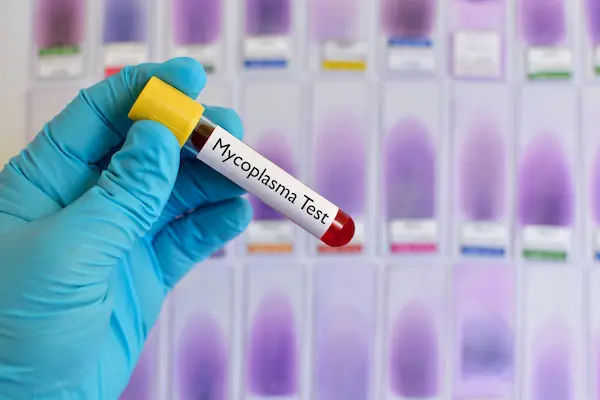Causes And Natural Treatments For Dry Cough
Discover the common causes of dry cough and explore safe, natural treatments to ease irritation, soothe your throat, and support faster relief at home.

Written by Dr. Siri Nallapu
Reviewed by Dr. J T Hema Pratima MBBS, Fellowship in Diabetes Mellitus
Last updated on 13th Jan, 2026

Introduction
That persistent, tickling, hacking sound, a dry cough can be more than just an annoyance; it can disrupt your sleep, strain your muscles, and impact your daily life. Unlike a productive "wet" cough that clears mucus, a dry cough is unproductive and often leaves your throat feeling raw and irritated. While it can be a symptom of various conditions, you don't always need to rush to the pharmacy. This guide will delve into the common causes behind that nagging tickle and empower you with a range of effective, evidence-based natural treatments to find relief and support your body's healing process. We'll explore everything from simple home concoctions to lifestyle adjustments that can make a world of difference.
Understanding a Dry Cough: More Than Just a Tickle
A dry, or non-productive, cough is a reflexive action designed to protect your airways. However, when there's no phlegm to expel, the cough itself becomes the problem, creating a cycle of irritation and inflammation. Understanding the root cause is the first step toward effective treatment.
Consult a General Physician for the best advice
How a Dry Cough Differs from Other Types
It's crucial to distinguish a dry cough from a chesty cough. A chesty cough is productive, meaning it brings up phlegm (sputum) from your lungs. It often sounds "loose" and is your body's way of clearing infections. A dry cough, on the other hand, is triggered by irritation or inflammation in your throat and upper airways. It sounds hacking, tickly, and doesn't produce mucus.
Common Causes of a Persistent Dry Cough
Identifying the trigger is key to finding the right solution. Here are the most frequent culprits.
1. Postnasal Drip: The Silent Irritant
This is one of the leading causes of a chronic dry cough. When your nose or sinuses produce excess mucus, it can drip down the back of your throat. This postnasal drip tickles the nerve endings, triggering a cough reflex, especially at night when you're lying down. It's commonly associated with allergies, colds, and sinus infections.
2. Viral Infections and Post-Viral Cough
The common cold and flu are classic starters for a dry cough. Even after the main infection has cleared, airway inflammation can persist for weeks. This is known as a post-viral cough. The sensitive nerves in your throat remain in a heightened state, causing you to cough at the slightest trigger.
3. Environmental and Lifestyle Triggers
Your everyday environment can be a major source of irritation.
Allergies: Exposure to allergens like pollen, dust mites, mold, or pet dander can cause inflammation and a dry, hacking cough.
Asthma: Cough-variant asthma specifically presents with a chronic dry cough as its main symptom, often worse at night or after exercise.
Air Quality: Pollutants, smoke, and dry air can all irritate the throat and lead to coughing.
GERD (Acid Reflux): Surprisingly, stomach acid backing up into your oesophagus can stimulate a cough reflex. This acid reflux cough is often worse after meals or when lying down.
Top Natural Remedies and Home Treatments for Dry Cough Relief
Before reaching for over-the-counter suppressants, consider these potent natural solutions that soothe irritation and address the underlying cause.
1. The Power of Hydration and Steam
This is the simplest and most effective strategy. Staying well-hydrated thins any lingering mucus and keeps your throat membranes moist. Inhaling steam is incredibly effective for a dry tickly cough. The moist air helps soothe inflamed airways and loosen secretions. Take a hot shower or lean over a bowl of hot water with a towel over your head for 5-10 minutes. Adding a few drops of eucalyptus oil can provide extra decongestant benefits.
2. Honey: Nature's Cough Suppressant
Multiple studies, including one published in JAMA Pediatrics, have found that honey is as effective, if not more so, than common over-the-counter cough medicines for children. Its thick, viscous texture coats and soothes the throat, while its antimicrobial properties can help fight minor infections. A natural cough syrup can be made by mixing a tablespoon of honey with warm water and lemon.
3. Soothing Herbal Teas and Gargles
Certain herbs have demulcent (soothing) and anti-inflammatory properties.
Marshmallow Root and Slippery Elm: These herbs form a gelatinous substance when mixed with water that coats the throat, providing excellent relief.
Ginger and Turmeric Tea: Both have powerful anti-inflammatory compounds. A tea made with fresh ginger, turmeric, a pinch of black pepper (to enhance absorption), and honey can reduce airway inflammation.
Salt Water Gargle: A classic for a reason. Gargling with warm salt water (1/2 teaspoon salt in a glass of water) can reduce throat swelling and loosen mucus, temporarily relieving the urge to cough.
4. Dietary Adjustments to Reduce Inflammation
What you eat can impact inflammation. For a cough related to GERD, avoid trigger foods like caffeine, chocolate, spicy foods, and citrus. Focus on an anti-inflammatory diet rich in fruits, vegetables, and omega-3 fatty acids to support your body's overall immune response.
Lifestyle and Environmental Changes for Prevention
Creating a cough-friendly environment can prevent the issue from starting or recurring.
1. Optimizing Your Home Environment
Use a Humidifier: Adding moisture to the air, especially in your bedroom at night, can prevent your throat from drying out and becoming irritated.
Reduce Allergens: Regularly vacuum, wash bedding in hot water, and use an air purifier with a HEPA filter to reduce dust mites, pollen, and pet dander.
Avoid Irritants: Eliminate exposure to tobacco smoke and strong chemical fumes.
2. The Role of Sleep and Positioning
Elevating your head with an extra pillow at night can significantly reduce coughing from postnasal drip and acid reflux by using gravity to your advantage. Ensuring you get adequate rest also allows your immune system to function optimally.
When to See a Doctor: Recognizing Red Flags
While natural remedies are excellent for short-term relief, it's vital to know when to seek professional medical advice. Consult a doctor if your cough:
Lasts longer than three weeks (becomes a chronic dry cough).
Is accompanied by difficulty breathing, wheezing, or chest pain.
Brings up blood or rust-coloured phlegm.
Is accompanied by unexplained weight loss, fever, or night sweats.
Is associated with a whooping sound or vomiting.
These could be signs of a more serious condition like pneumonia, whooping cough, chronic bronchitis, or other underlying health issues that require medical intervention.
Conclusion
A dry cough, while frustrating, is often your body's signal that something is irritating your airways. By understanding the common causes, from postnasal drip and allergies to acid reflux, you can take targeted action. The natural remedies outlined here, such as honey, steam, hydration, and herbal teas, are powerful first-line tools to soothe irritation, reduce inflammation, and break the cough cycle. Remember, these strategies are about supporting your body's innate healing abilities. However, always prioritize your health by recognizing the red flags that warrant a doctor's visit. By combining these natural approaches with a mindful assessment of your environment and habits, you can effectively quiet that nagging cough and reclaim your comfort.
Consult a General Physician for the best advice
Consult a General Physician for the best advice

Dr. Swarna Deepak K
General Physician/ Internal Medicine Specialist
20 Years • MBBS: MD (Internal Medicine) MRCP (UK), EDIC (European Diploma in Critical Care), IDCCM, IFCCM (Critical Care), FID (Royal Liverpool Academy)
Hyderabad
Apollo Hospitals Jubilee Hills, Hyderabad
(425+ Patients)

Dr. Dhanraj K
General Physician/ Internal Medicine Specialist
25 Years • MBBS, MD Internal Medicine - Osmania Medical College, Hyderabad
Hyderabad
Apollo Hospitals Jubilee Hills, Hyderabad
(400+ Patients)

Dr. Harshendra Jaiswal
General Physician/ Internal Medicine Specialist
12 Years • MBBS , MD (General medicine)
Kolkata
108 DHANA DHANVANTARI Clinic, Kolkata
(25+ Patients)
Dr P Sai Avinash
General Physician/ Internal Medicine Specialist
7 Years • MBBS
Bengaluru
Apollo Medical Center, Marathahalli, Bengaluru

Dr Bhargav Vuppumalla
General Physician/ Internal Medicine Specialist
5 Years • MBBS MD GENERAL MEDICINE
Bengaluru
Apollo Medical Center, Marathahalli, Bengaluru



.webp)
